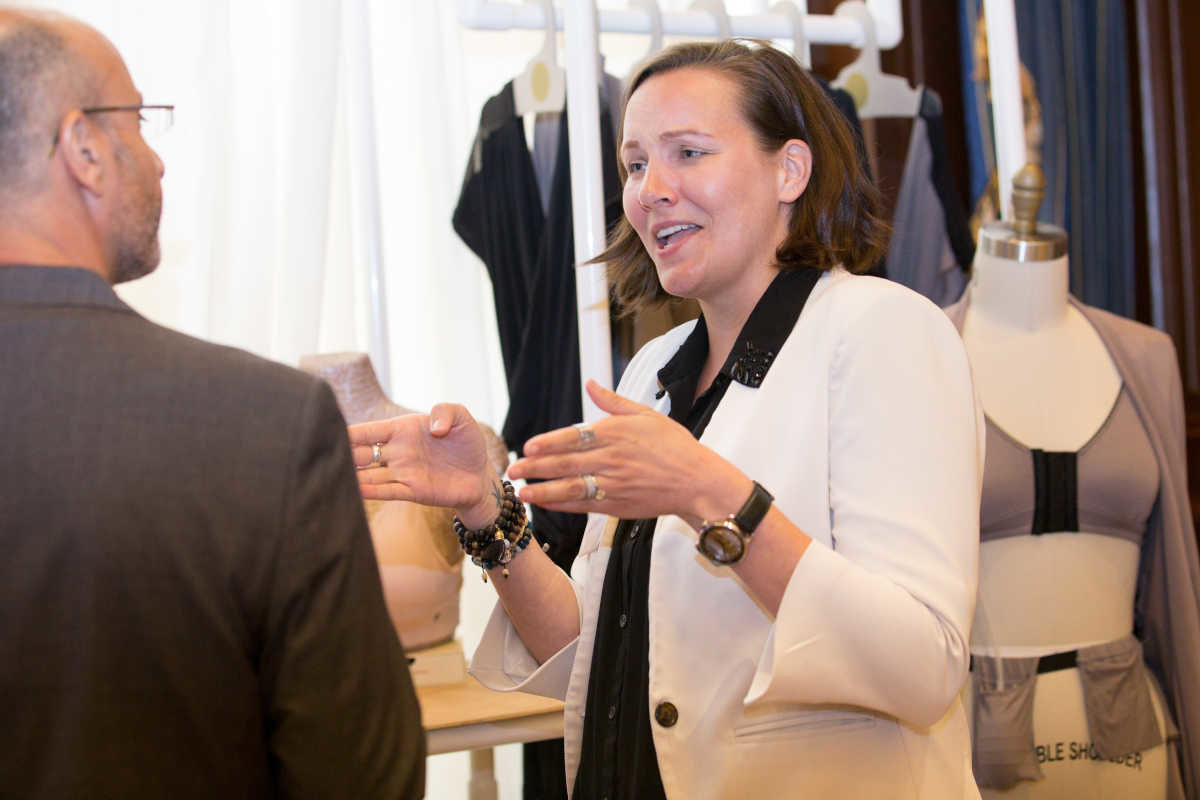By Diane Mastrull
Philly.com
WWR Article Summary (tl;dr) It was noticeable to many who attended the recent “Angel Venture Fair” in Philadelphia that there were few women exhibiting and presenting. Leaders now want to figure out what can be done to change that scenario for next year and years to come.
Philly.com
Why are there so few women here?
That was the first thing that occurred to me when I walked into the elegant second-floor Lincoln Hall ballroom at the Union League on May 5 to take in the 19th annual Angel Venture Fair, the oldest and largest gathering of angel investors and entrepreneurs in the Mid-Atlantic region.
At table after table sat male after male. Exhibit booths ringing the room were predominantly manned by men. In the two small breakout rooms, where officials from 24 non-university start-ups gave 10-minute presentations to possible investors, audiences were predominantly male. (Later, 10 college-student start-ups got one minute each to present onstage at Lincoln Hall.)
For South Philadelphia entrepreneur Dana Donofree, the gender inequity only added to the stress. Her company, AnaOno Intimates LLC, one of only four women-led presenters at this year’s Angel Venture Fair, makes bras specially designed for breast cancer patients.
Donofree, 35, a survivor of the disease, pitched to 39 potential investors. Only nine were women.
“Pitching in general is a really difficult thing, but when you’re pitching about a woman-owned business for women, as a very sensitive woman issue — we’re talking about women that dress when they had a loss of their breasts — it’s a very challenging topic to address in a roomful of men,” she said.
In such settings, she’s doing double duty, Donofree said. “I have to kind of break down those barriers of not only having a sensitive subject, but also letting [investors] understand how important it is to a woman to really feel beautiful and good about yourself.”
Such male-dominated pitch events are “awkward” even for women there not to present but to network, as Morgan Berman was. The chief executive and founder of Milk Crate LLC, a Center City start-up designed to help sustainability-oriented consumers find like-minded businesses, is trying to raise $500,000 in seed funding.
“It is a little bit awkward for me to just go up to all these middle-aged men in sports jackets in the Union League,” said Berman, 31, many of them her backdrop as she spoke in Lincoln Hall, its walls lined with framed oil paintings of the private club’s presidents.
(Founded in 1862 and built in 1865, the Union League installed its first woman president in December 2010, 24 years after admitting women members.)
“Women entrepreneurs need women investors to step up and get involved,” Berman said.
Of about 400 prospective investors this year, 10 were women, said Marc Kramer, the event’s executive director, an entrepreneur and executive-in-residence at St. Joseph University’s Haub School of Business.
This year’s fair, the seventh he has organized, left Kramer — the father of two adult daughters with businesses of their own — making plans, not excuses. He is checking with sponsors to gauge support for an Angel Venture Fair for women in the fall. It would augment the annual spring pitch, at which women would still be invited to participate.
“We just don’t see as many women applicants,” he said. Of this year’s record 237 applicants from companies in 16 states and 28 countries, about 25 percent were women, Kramer noted.
With Silicon Valley often portrayed as a testosterone-laden land of entrepreneurship, “I think there’s a great opportunity for Philadelphia to capture, on a national basis, the women’s market,” he said.
Ellen Weber, executive director of Robin Hood Ventures, said progress in gender-leveling the venture field is being made, citing several funds led by women, including Jumpstart NJ Angel Network, Golden Seeds, DeSimone Group Investments, and Ben Franklin Technology Partners.
buy priligy generic buy priligy online no prescription
Looking up from her laptop, Weber did not attempt to hide her disappointment at not seeing more women at the event. In general, that does not bode well for female entrepreneurs looking for funding, she said.
“People invest in people they understand, and in products they understand,” Weber said. “If you have more women investors, women have a better chance of getting an investment.”
That seems to have been at play with AnaOno.
“My first three investors that are coming in on AnaOno are all women investors,” Donofree said. “That is also very interesting because they know the problem, they know the problem needs to be addressed, and they want to help improve the lives of people affected by cancer.”
Anticipating the heavily male, dark-jacketed turnout she encountered at the event, Donofree wore a white blazer “to stand out.”
“There are a lot of successful women CEOs, cofounders, founders,” she said. “If they can engage and give back to the community, we could learn from them on very real terms. We need to learn from one another and get their expertise and how did they navigate these waters, so we know how to improve and expand and develop our own community and support system.”














































































































































































































































































































































































